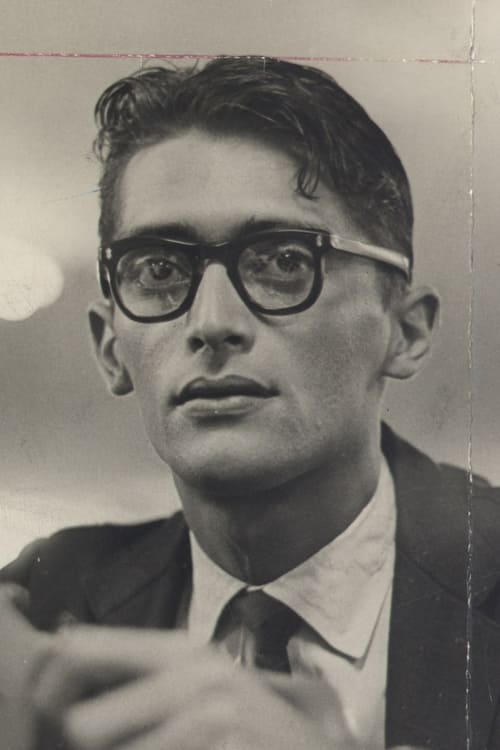Walter Lima Jr.
Birth : 1938-11-26,
History
Walter Lima Jr. is a Brazilian film director and screenwriter. He has directed 17 films since 1965. His 1969 film Brazil Year 2000 was entered into the 19th Berlin International Film Festival, where it won a Silver Bear.

Self
In 1965, a year after the military coup in Brazil, an oasis of freedom opened in the country's capital. The Brasília Film Festival: a landmark of cultural and political resistance. Its story is that of Brazilian cinema itself.
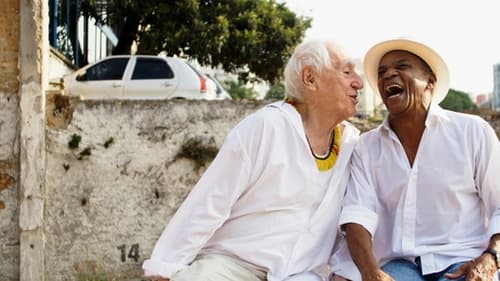
Self
This documentary investigates the aesthetic, political and existential trajectory of emblematic Black Brazilian actor Antônio Pitanga. He career spans over five decades, and he has worked with iconic Brazilian filmmakers Glauber Rocha, Cacá Diegues and Walter Lima Jr. He was a prominent figurehead and outspoken activist during the Brazilian dictatorship, a period of unrest in Brazilian cinema. Pitanga deep dives into the world of Antônio and the history of Brazil. The documentary was directed by his daughter Camila Pitanga, one of widely recognised faces in Brazilian television and cinema right now. The film is also a poem, and a tender ode to fatherhood.
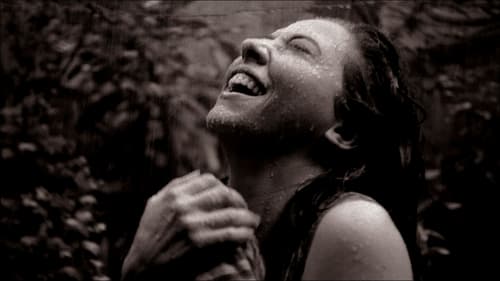
Self - Filmmaker (archive footage)
A deep investigation, in the way of a poetic essay, on one of the main Latin American movements in cinema, analyzed via the thoughts of its main authors, who invented, in the early 1960s, a new way of making movies in Brazil, with a political attitude, always near to people's problems, that combined art and revolution.

Writer
Laura makes spooky observations as soon as she starts her job as a teacher for two orphan students at a plantation. She concludes that it has something to do with the former caretaker and his romantic partner.

Director
Laura makes spooky observations as soon as she starts her job as a teacher for two orphan students at a plantation. She concludes that it has something to do with the former caretaker and his romantic partner.

Documentary about the cinema that formed the Paissandu Generation, in the 60s, and the cultural and social impact of that period for the country's history.
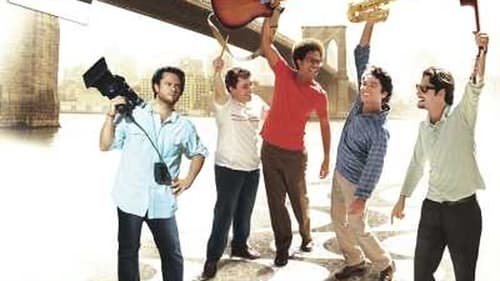
Screenplay
A group of friends come of age during the political turmoil that plagued Brazil in the 1960's and 70's. Together, these musicians form a band called "Os Desafinados" and become a part of the groundbreaking Brazilian musical movement called Bossa Nova

Director
A group of friends come of age during the political turmoil that plagued Brazil in the 1960's and 70's. Together, these musicians form a band called "Os Desafinados" and become a part of the groundbreaking Brazilian musical movement called Bossa Nova

Documentary on the life and work of José Lins do Rego (1901-1957), one of Brazil's greatest 20th century literary authors, writer of celebrated novels "Menino de Engenho", "Fogo Morto", "Moleque Ricardo", "Riacho Doce" and many more.

The documentary "Depois do Transe" covers the entire process of creating the masterpiece "Entranced Earth", which was released and awarded at the Cannes Film Festival in 1967. "Entranced Earth" charmed the world and won great admirers such as filmmaker Martim Scorsese and the writer Marguerite Duras, who at the time considered a "fabulous filmic opera."

Director

Self
Nineteen people with differing degrees of visual impairment – from mild nearsightedness to total blindness – discuss how they see themselves, how they see others and how they perceive the world. Unusual images, of burning trees or empty deserts, link the interviews, which vary from deep to funny to poetic.

Other
Ivan Canabrava is a writer, turned insurance ivestigator who investigates mysterious deaths involving Bufo Marinus. Bufo Marinus is a frog poison causing catalepsy in humans, simulating death, enabling grand insurance fraud and other crimes. Ten years later, now as a successful writer, similar characters possibly using Bufo Marinus reappear and create an intricate plot full of surprises.

Director
Claudia Maccari, an Italian doctor who has a Brazilian adopted son suffering from leukemia, goes to Rio de Janeiro to find the child's biological mother for a transplant. She is reluctantly helped by a Detective.

Screenplay
A young girl named Marcela lives with her dad, Jose, a lighthouse keeper, and old Daniel on an island. The only contact the girl has with the world outside her home is by a boat with four sailors that pays a visit to the island in order to take them supplies. Daniel, who not only protects her from her dad's strictness but also teaches her how to be literate, is her source of tenderness. Her dad thinks she should be away from the world - though she wishes she could spend a few days in town. Then one day, as she has her first period and becomes a woman, she starts feeling sexuality through the blowing wind, which she talks to.

Director
A young girl named Marcela lives with her dad, Jose, a lighthouse keeper, and old Daniel on an island. The only contact the girl has with the world outside her home is by a boat with four sailors that pays a visit to the island in order to take them supplies. Daniel, who not only protects her from her dad's strictness but also teaches her how to be literate, is her source of tenderness. Her dad thinks she should be away from the world - though she wishes she could spend a few days in town. Then one day, as she has her first period and becomes a woman, she starts feeling sexuality through the blowing wind, which she talks to.

Screenplay
In the 18th century in a forgotten town, young Benedicta is the executioner's daughter. Monk Ambrosius, newly arrived at the village, pities the girl but his interest in her unleashes the jealousy of Rochus and the conflict between passion and celibacy begins.

Director
In the 18th century in a forgotten town, young Benedicta is the executioner's daughter. Monk Ambrosius, newly arrived at the village, pities the girl but his interest in her unleashes the jealousy of Rochus and the conflict between passion and celibacy begins.
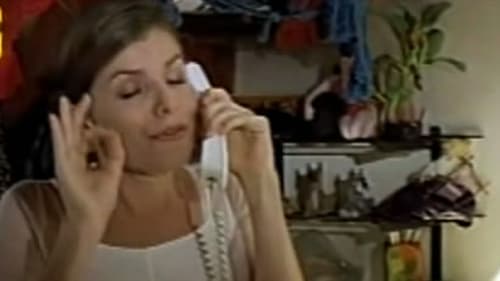
Writer
Four love stories which portray a wide gamut of emotions and desires against the backdrop of Rio de Janeiro. "Elephant's Stomp" : the story of a highway patrol officer who is infatuated with a mulatto dancer at a local nightclub. "Drao" : a publicity man and a boutique owner who face a crises in their marriage. "You Are Beautiful" : two homeless teenagers seek love amidst their personal misery. "Samba of the Great Passion" : a book maker who is charmed and captivated by the voice of a female singer coming from a building across the street. Characters in search of love in order to escape from the boredom, loneliness and helplessness of their lives.

Ele mesmo

Writer
According to an Amazonian legend, every month, during the full moon, a Brazilian fishing village receives a mysterious guest: the Boto, who transforms into a human to seduce and be loved by women and hated by men. One of her conquests is the daughter of a fisherman, who has a son with the Boto. He constantly reappears to seduce her, and even when she marries, he continues to look for her. This provokes the ire of the husband, who wants to kill him anyway.

Director
According to an Amazonian legend, every month, during the full moon, a Brazilian fishing village receives a mysterious guest: the Boto, who transforms into a human to seduce and be loved by women and hated by men. One of her conquests is the daughter of a fisherman, who has a son with the Boto. He constantly reappears to seduce her, and even when she marries, he continues to look for her. This provokes the ire of the husband, who wants to kill him anyway.

Writer
The story of one of Brazilian cinema's pioneers, Eduardo Abelim, from the start of his career, in Rio de Janeiro, until his filming of the 1930 Revolution. To promote his films, Abelim would even perform car stunts, give classes on the occult and offer guidance on mystical matters.

Editor
Galanga, king of Congo brought to Brazil as a slave, finds gold in Vila Rica, in the State of Minas Gerais, and buys his enfranchisement, the properties of his former owner, and his companions' freedom, becoming Chico Rei, the first black man to own lands in Brazil.

Writer
Galanga, king of Congo brought to Brazil as a slave, finds gold in Vila Rica, in the State of Minas Gerais, and buys his enfranchisement, the properties of his former owner, and his companions' freedom, becoming Chico Rei, the first black man to own lands in Brazil.

Director
Galanga, king of Congo brought to Brazil as a slave, finds gold in Vila Rica, in the State of Minas Gerais, and buys his enfranchisement, the properties of his former owner, and his companions' freedom, becoming Chico Rei, the first black man to own lands in Brazil.

Director
In the 19th century, a country girl is seduced by a young doctor who's staying at her house for a few days, caring for her, and tries to hide the forbidden romance from her father, who disapproves of the relationship.

Director

Director

Producer
During the Carnival, in Niterói, the son of a Lira do Delírio nightclub dancer is kidnapped. With the help of a journalist friend, she dives into Rio de Janeiro's underworld and meet all kind of criminals. She also goes back in time, to a past carnival, where she thinks she might pin-point the culprit among a group of people.

Writer
During the Carnival, in Niterói, the son of a Lira do Delírio nightclub dancer is kidnapped. With the help of a journalist friend, she dives into Rio de Janeiro's underworld and meet all kind of criminals. She also goes back in time, to a past carnival, where she thinks she might pin-point the culprit among a group of people.

Director
During the Carnival, in Niterói, the son of a Lira do Delírio nightclub dancer is kidnapped. With the help of a journalist friend, she dives into Rio de Janeiro's underworld and meet all kind of criminals. She also goes back in time, to a past carnival, where she thinks she might pin-point the culprit among a group of people.

Director

Director
A film in three movements. In the first one, we find a historical synthesis of Brazilian architecture, from the slaves' dwellings to the Ministry of Education Building. In the second segment, architects such as Burle Marx, Lina Bo Bardi, Grigori Warchavchik and Joaquim Cardoso talk about architecture's social function. In the third movement, inhabitants of some Brazilian cities discuss the space they live in.

Associate Producer
Adaptation of José Vicente's play "O Assalto" (The Theft). Bank clerk and a janitor meet at work in the middle of the night, when the first decides to rob the bank's safe.

Writer
Adaptation of José Vicente's play "O Assalto" (The Theft). Bank clerk and a janitor meet at work in the middle of the night, when the first decides to rob the bank's safe.

Director
Adaptation of José Vicente's play "O Assalto" (The Theft). Bank clerk and a janitor meet at work in the middle of the night, when the first decides to rob the bank's safe.

Editor

Director

Writer
Year 2000. Brazil was partially devastated by the Third World War. An immigrant family arrives in a small town, which they call "I Forgot." The trio is recruited by an indigenist to pretend to be indigenous during the visit of a general. In the dilemma of integrating into the system or preserving individual freedom, the family moves toward disintegration as the city prepares to launch a space rocket.

Producer
Year 2000. Brazil was partially devastated by the Third World War. An immigrant family arrives in a small town, which they call "I Forgot." The trio is recruited by an indigenist to pretend to be indigenous during the visit of a general. In the dilemma of integrating into the system or preserving individual freedom, the family moves toward disintegration as the city prepares to launch a space rocket.

Director
Year 2000. Brazil was partially devastated by the Third World War. An immigrant family arrives in a small town, which they call "I Forgot." The trio is recruited by an indigenist to pretend to be indigenous during the visit of a general. In the dilemma of integrating into the system or preserving individual freedom, the family moves toward disintegration as the city prepares to launch a space rocket.

Originally produced for German TV, Improvised and Purposeful is a firsthand look at the "Cinema Novo" movement (otherwise known as the 'Brazilian New Wave'). Director Joaquim Pedro de Andrade focuses on six Cinema Novo filmmakers working in Rio in 1967.
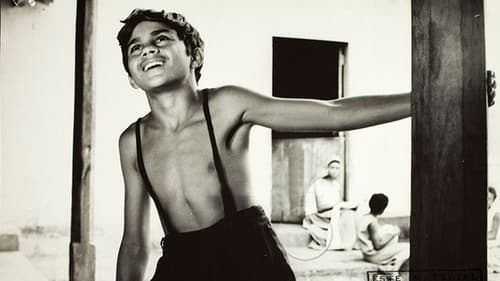
Writer
After being orphaned, a boy is raised by his grandfather and uncles, rich rural landowners, on a sugarcane plantation where he grows up, studies, learns about politics, love and disillusionment.

Director
After being orphaned, a boy is raised by his grandfather and uncles, rich rural landowners, on a sugarcane plantation where he grows up, studies, learns about politics, love and disillusionment.
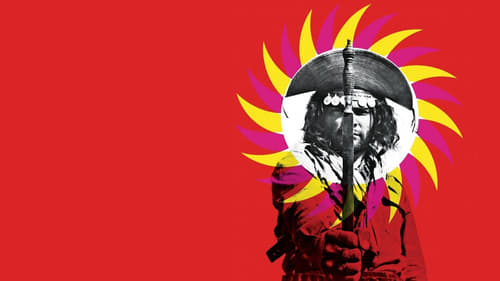
Writer
Wanted for killing his boss, Manuel flees with his wife Rosa to the sertão, the barren landscape of Northern Brazil. Thrust into a primordial violent region, Manuel and Rosa come under the influence and control of a series of frightening figures.
